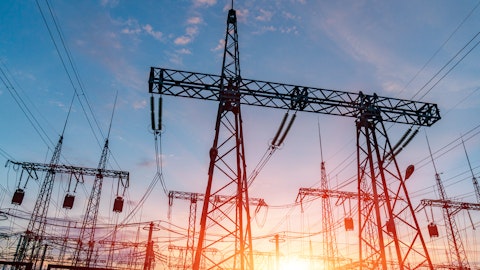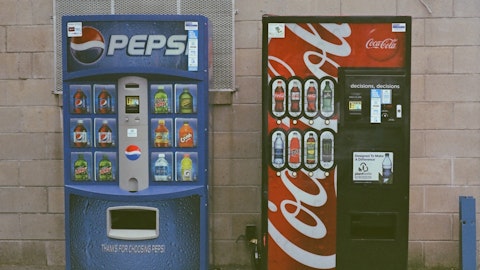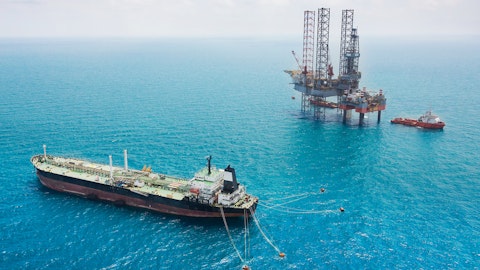But given our infrastructure focus, we do this by conservatively hedging our position well in advance, which reduces our market exposure. And you will notice, as you look in the €˜22 earnings on a GAAP basis, as a result of those hedges, we have unrealized mark-to-market losses of over $300 million, which represents the difference between our conservative hedges and the market price. So again, as an infrastructure company, we prefer to optimize recurring infrastructure cash flows and minimize our exposure to changes in commodity prices, essentially exchanging price volatility to get recurring cash flows. And I think you will see that trend continue. We are focused on long-term recurring cash flows from credit where the offtakers and that will be our focus at SI.
Anthony Crowdell: Great. And then if I could just follow-up probably also to you, Justin, on the Port Author Phase 1, enter the EPC contract, $10.5 billion fixed price. If you could just give us some more color maybe on the contract. Is there cost-plus agreement or any commodity exposure that maybe SIP or Sempra has with Bechtel, and I will leave it there?
Justin Bird: Yes. Thanks Anthony. So yes, as we have said, that contract is for $10.5 billion. It is a fixed price. There is some escalation components in that as we move towards issuing a final notice to proceed. I think importantly, let me emphasize again, we are very proud of our selection of Bechtel. They have a history of building projects, LNG projects in the Gulf that have all been on-time, on-budget and have importantly provided production numbers in excess of what was guaranteed. As we look at our specific EPC contract, there are some very small pieces of that, that would float. But again, we have a contingency in place as does Bechtel to handle those adjustments. So, I think again, looking to Bechtel’s history, they delivered on-time, on-budget, under fixed price EPC contract. So, we are very comfortable with the contract. And again, I will use my word again, I can’t tell you how excited we are as we move towards FID prior to the end of this quarter.
Anthony Crowdell: Great. Thanks so much. Congratulations on the great quarter.
Jeff Martin: Thanks Anthony.
Operator: Thank you. And our next question comes from Jeremy Tonet from JPMorgan. Your line is open.
Rich Sunderland: Hi. Good morning. It’s actually Rich Sunderland on for Jeremy. Thank you for the time today.
Jeff Martin: Hey Rich.
Rich Sunderland: Sticking with some of the LNG questions here, I know in the past on the growth rate you have had LNG in the plan. And obviously, the business has changed a lot since then. I believe Port Arthur was upside to the growth rate last year. Just curious if that’s still the case this year, or is Port Arthur now baked in as you approach FID.
Jeff Martin: Yes, it’s a great question. We are going to update our roll forward 5-year capital plan later this spring. Currently, we are working off of the plan we rolled out last year. We don’t simply put projects in our plan unless they have reached FID. So, I would view Port Arthur as an upside to our long-term opportunities.
Rich Sunderland: Got it. Very clear. Thank you. And then looking across a range of future LNG projects, are you seeing more interest from Asian buyers versus European buyers for incremental offtake, curious where interest stands?




